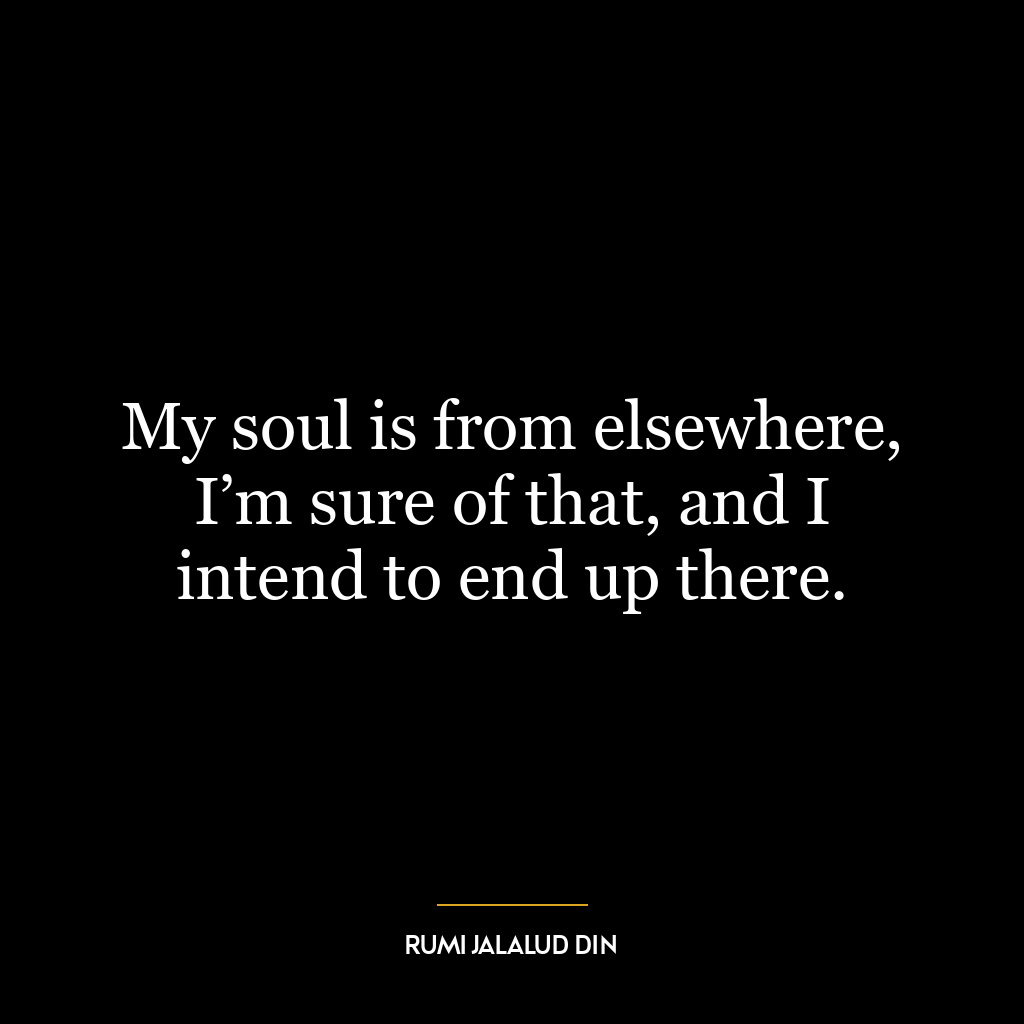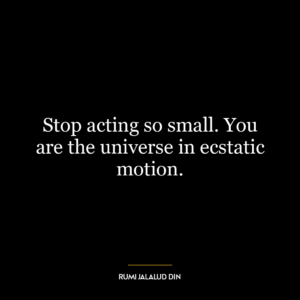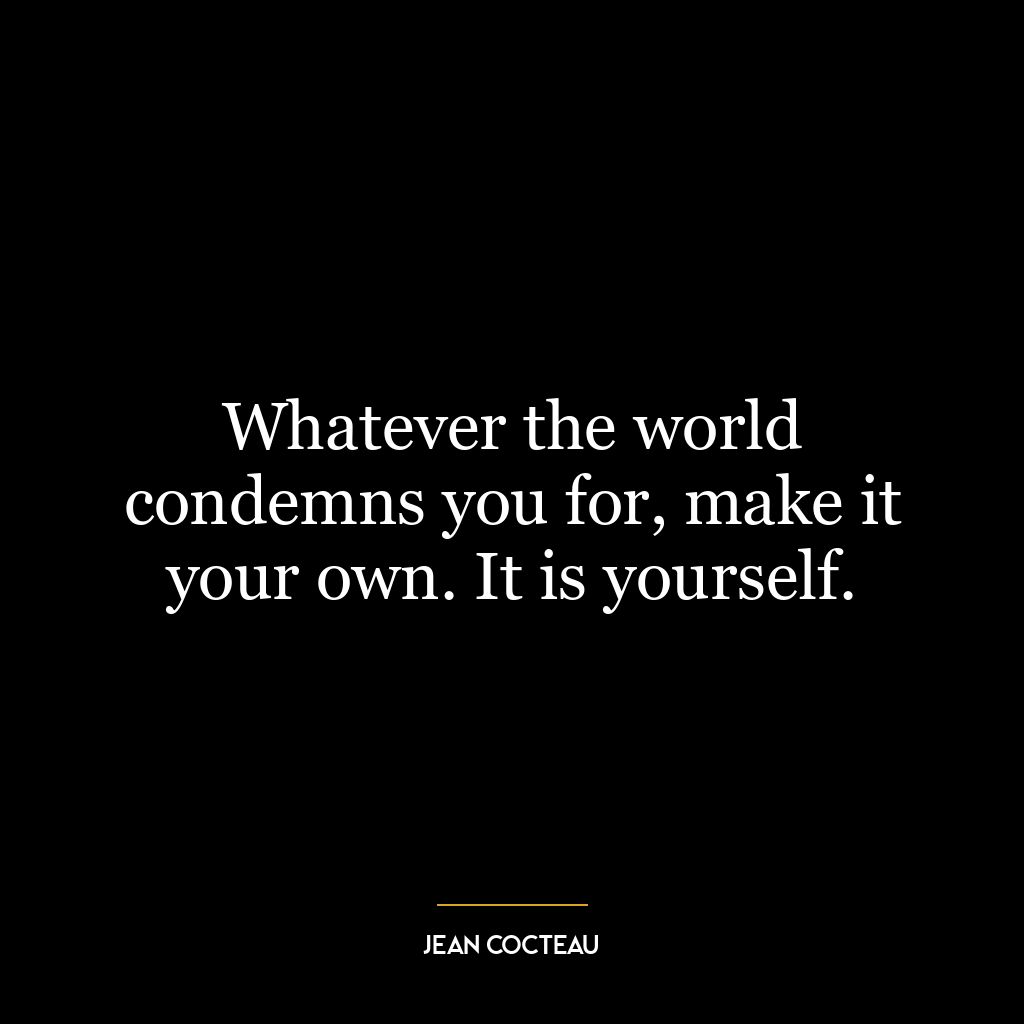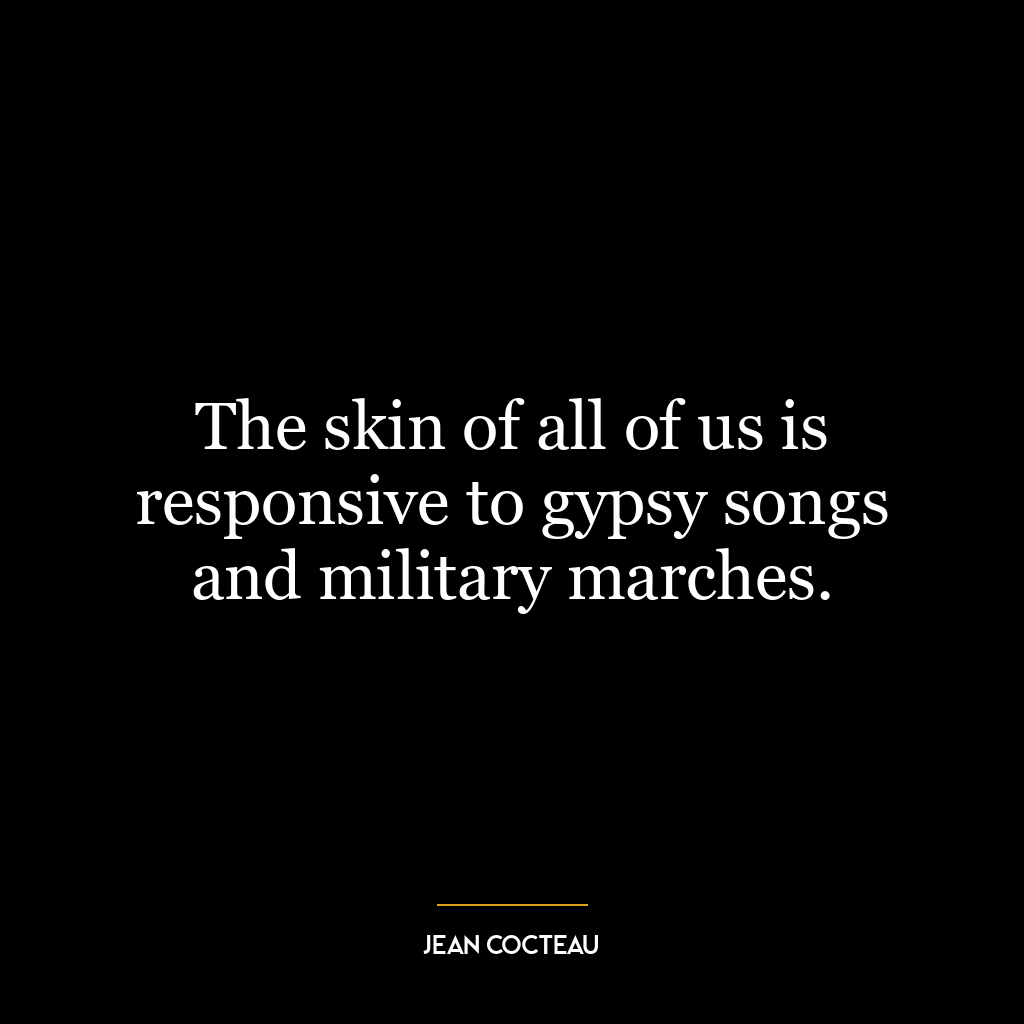My soul is from elsewhere, I’m sure of that, and I intend to end up there.
This quote is a profound assertion of the human spirit’s connection to something beyond the physical realm. When Rumi says, “My soul is from elsewhere,” he is expressing a belief in the pre-existence of the soul, a concept shared by many spiritual and religious traditions. This suggests that our essential selves, our true identities, are not confined to our physical bodies or the material world.
The second part of the quote, “I’m sure of that, and I intend to end up there,” reflects Rumi’s firm conviction in this belief and his spiritual aspiration. He is not merely content with acknowledging the otherworldliness of his soul; he is determined to reunite with it, to return to his spiritual origin. This signifies a longing for transcendence, a desire to go beyond the mundane and the temporal, to a realm of eternal truth and beauty.
In today’s world, this quote could be interpreted as a call to self-discovery and personal development. It invites us to question our identities beyond our social roles, physical attributes, and personal histories. It encourages us to explore our inner selves, our values, passions, and purposes, which are often overshadowed by external pressures and expectations.
Moreover, this quote could inspire us to seek meaning and fulfillment beyond material success. In a society that often measures worth by wealth, status, or physical appearance, Rumi’s words remind us that our true worth lies in our inner selves, our souls. It suggests that genuine happiness and fulfillment come from aligning our lives with our soul’s desires and purpose, rather than pursuing external validations.
In essence, this quote could serve as a compass guiding us towards authentic living and spiritual growth. It encourages us to not just exist, but to live consciously and purposefully, to strive for inner peace and enlightenment, and ultimately, to return to our true spiritual home.















